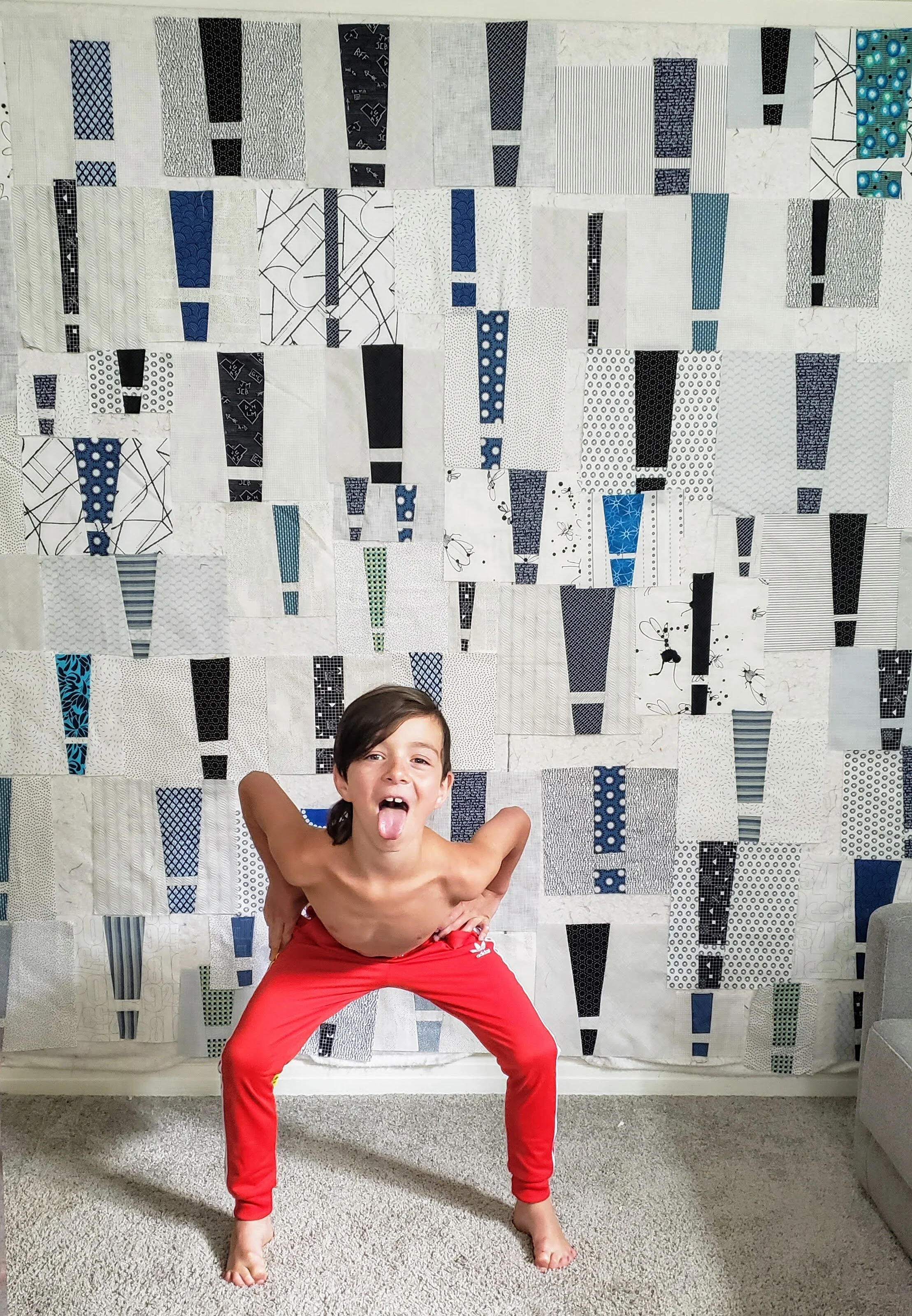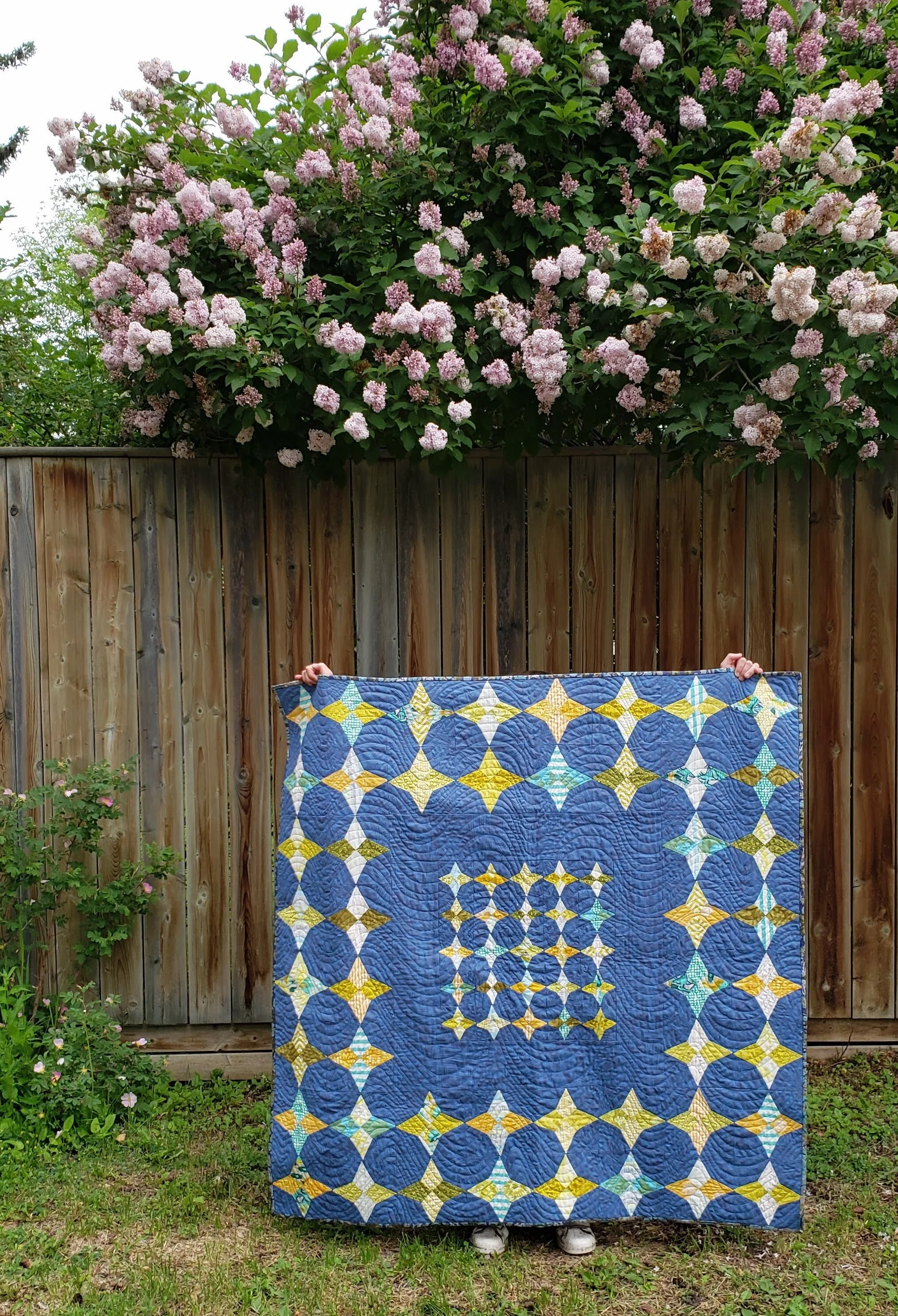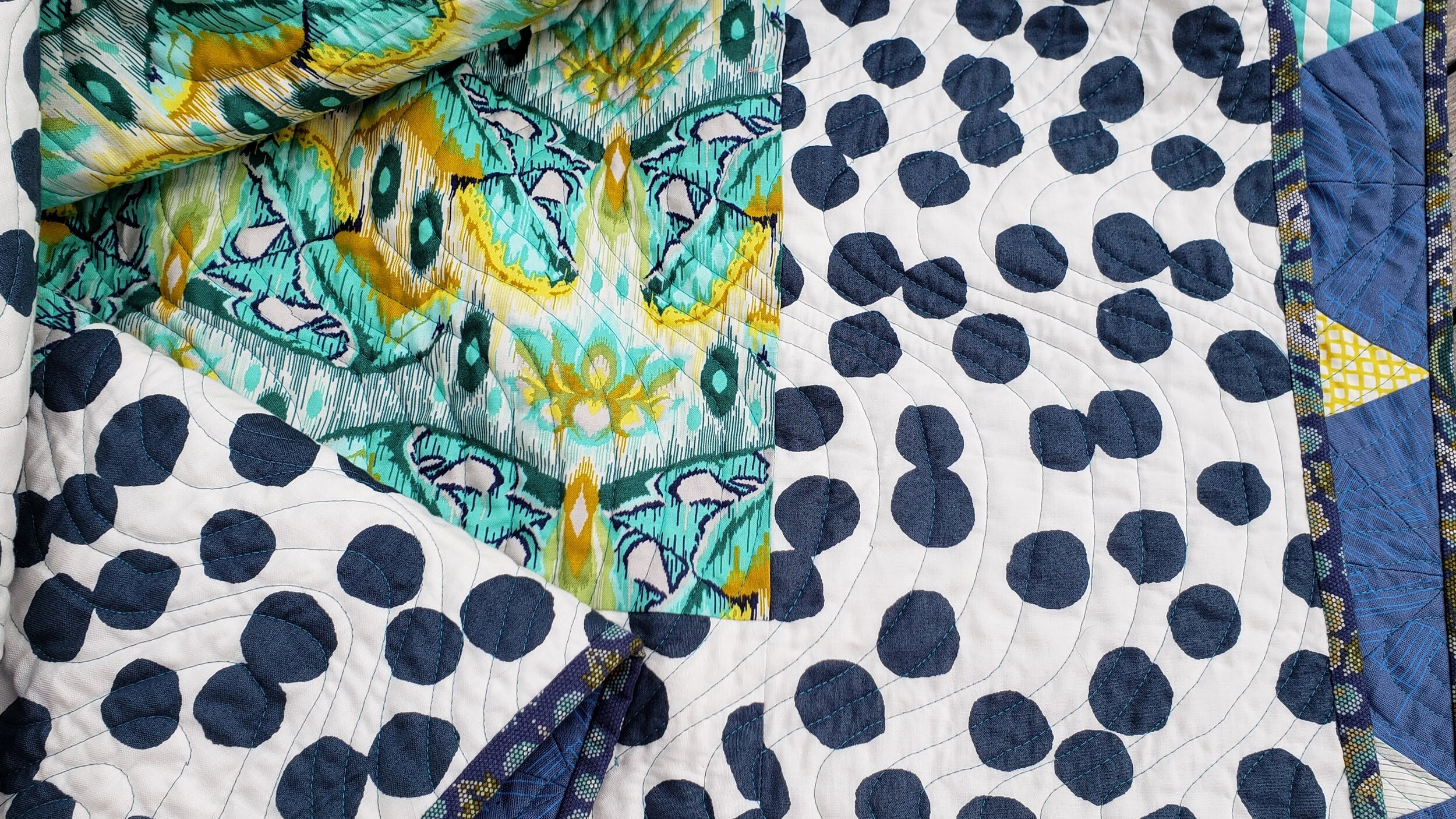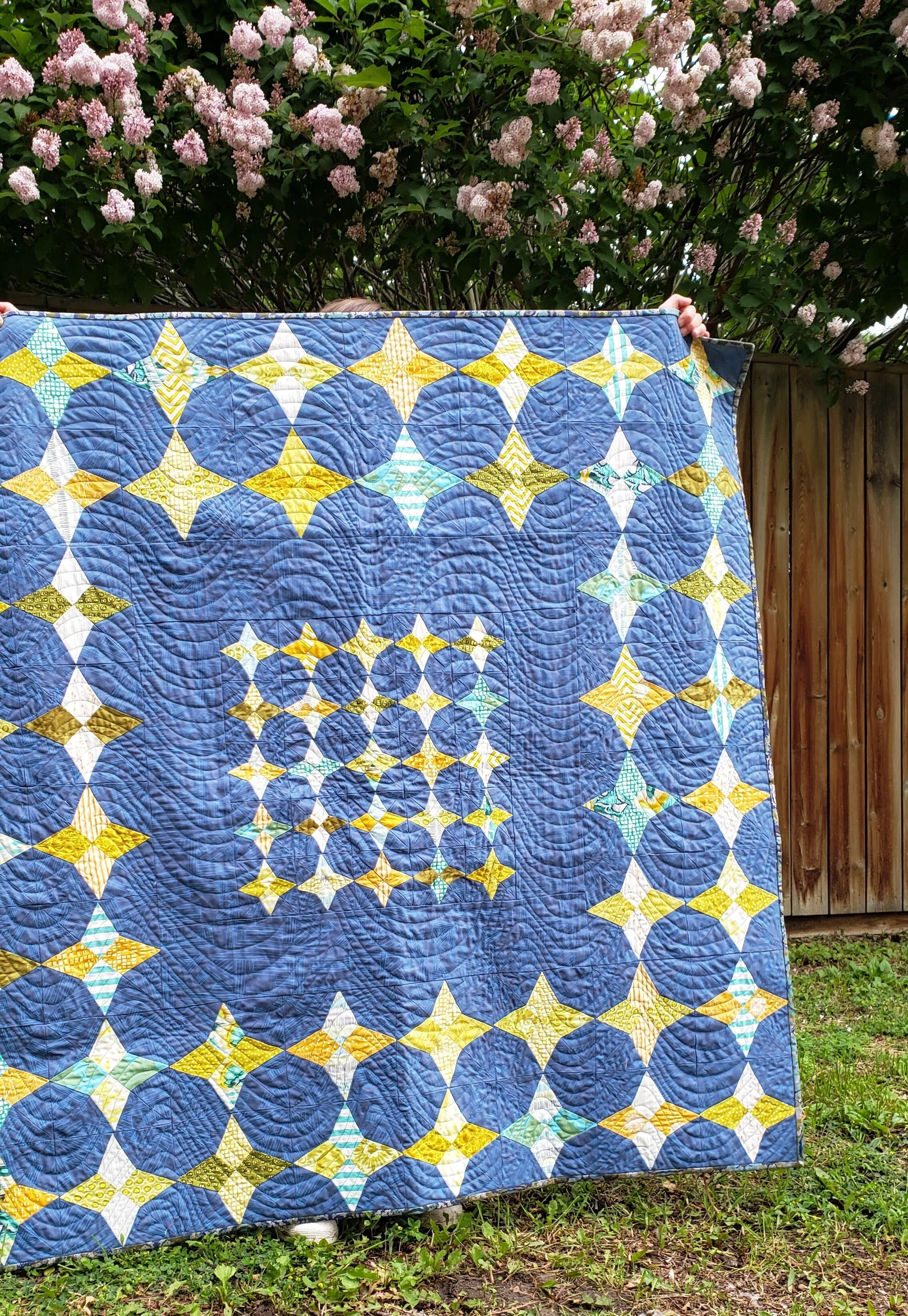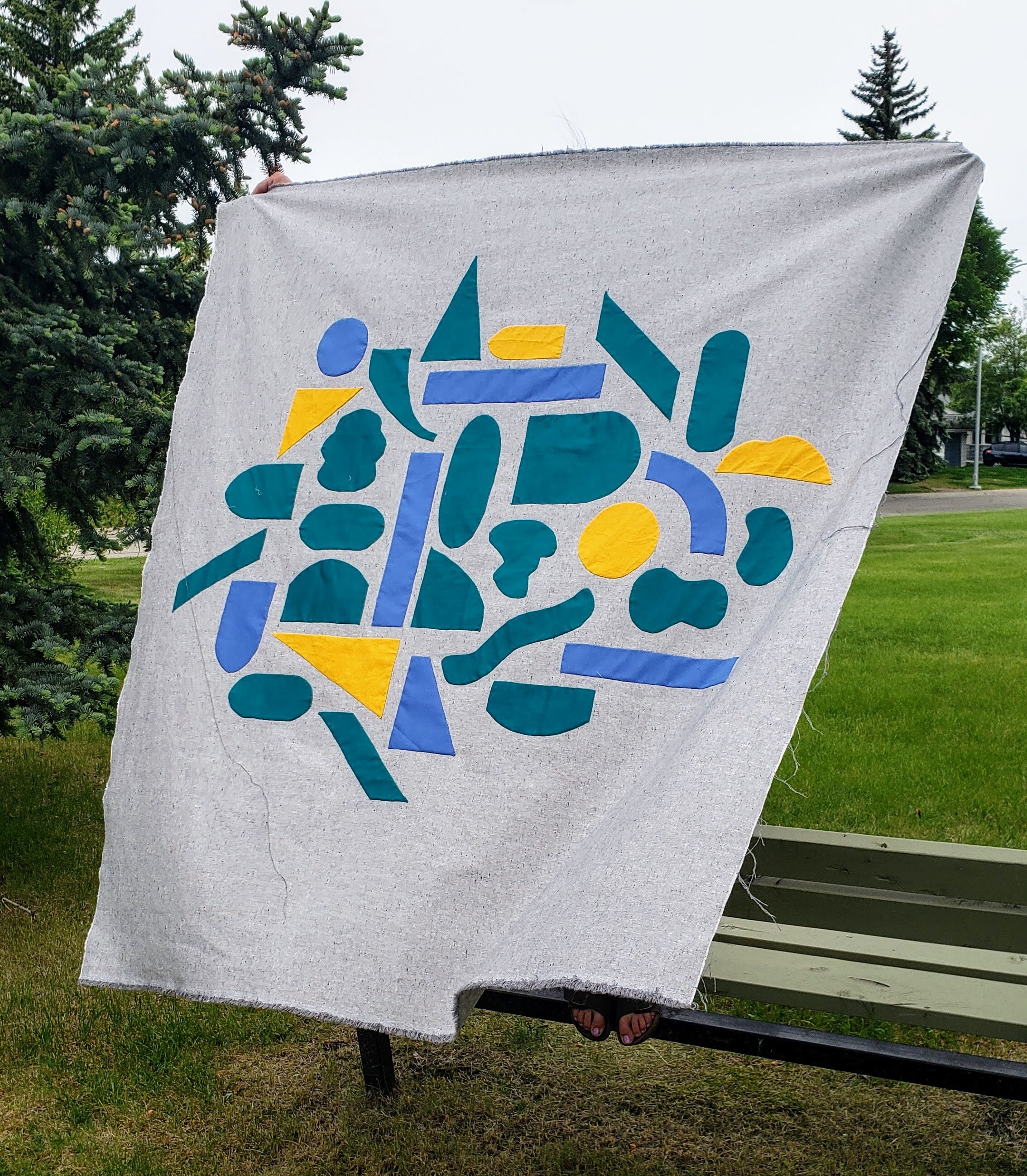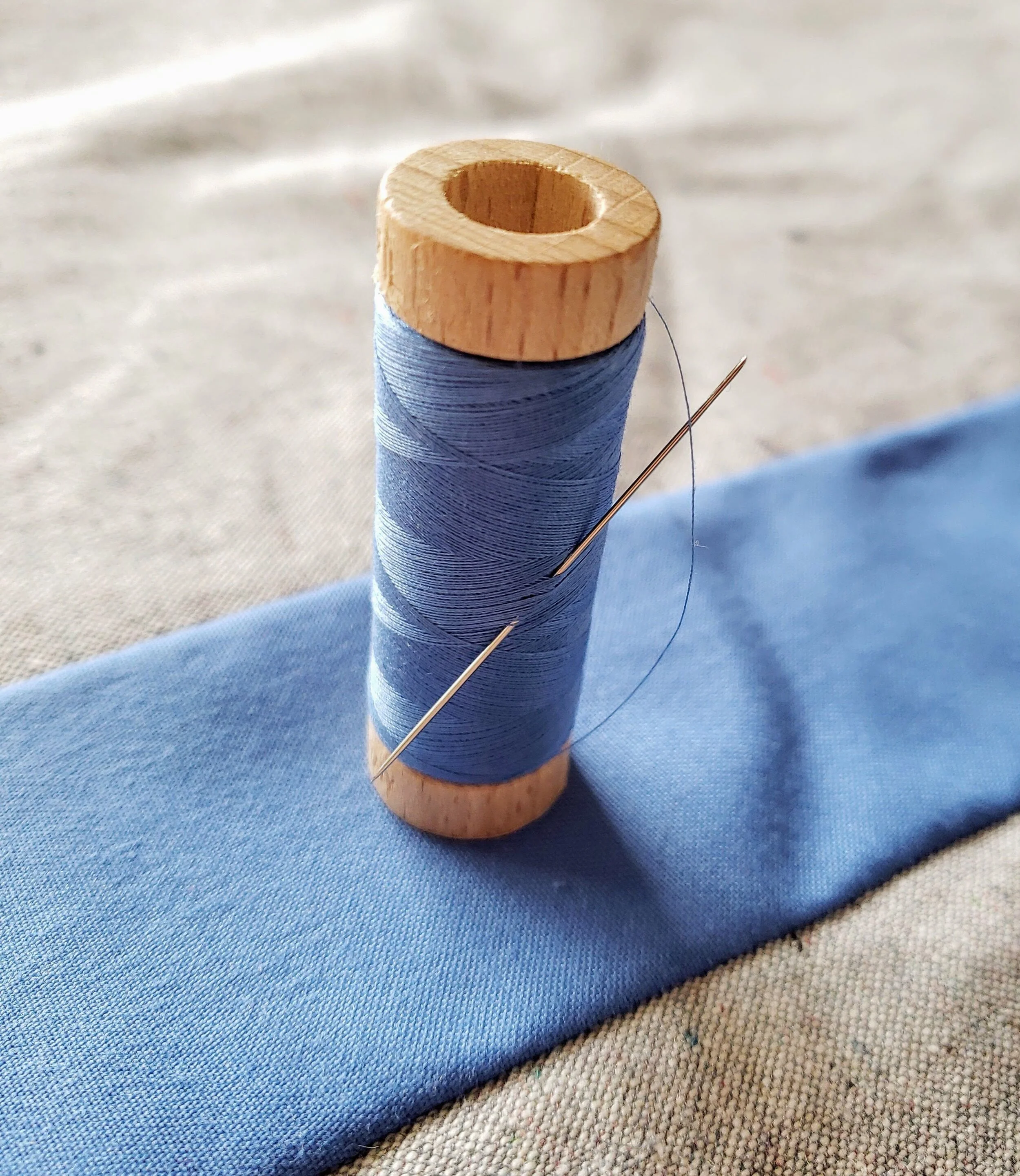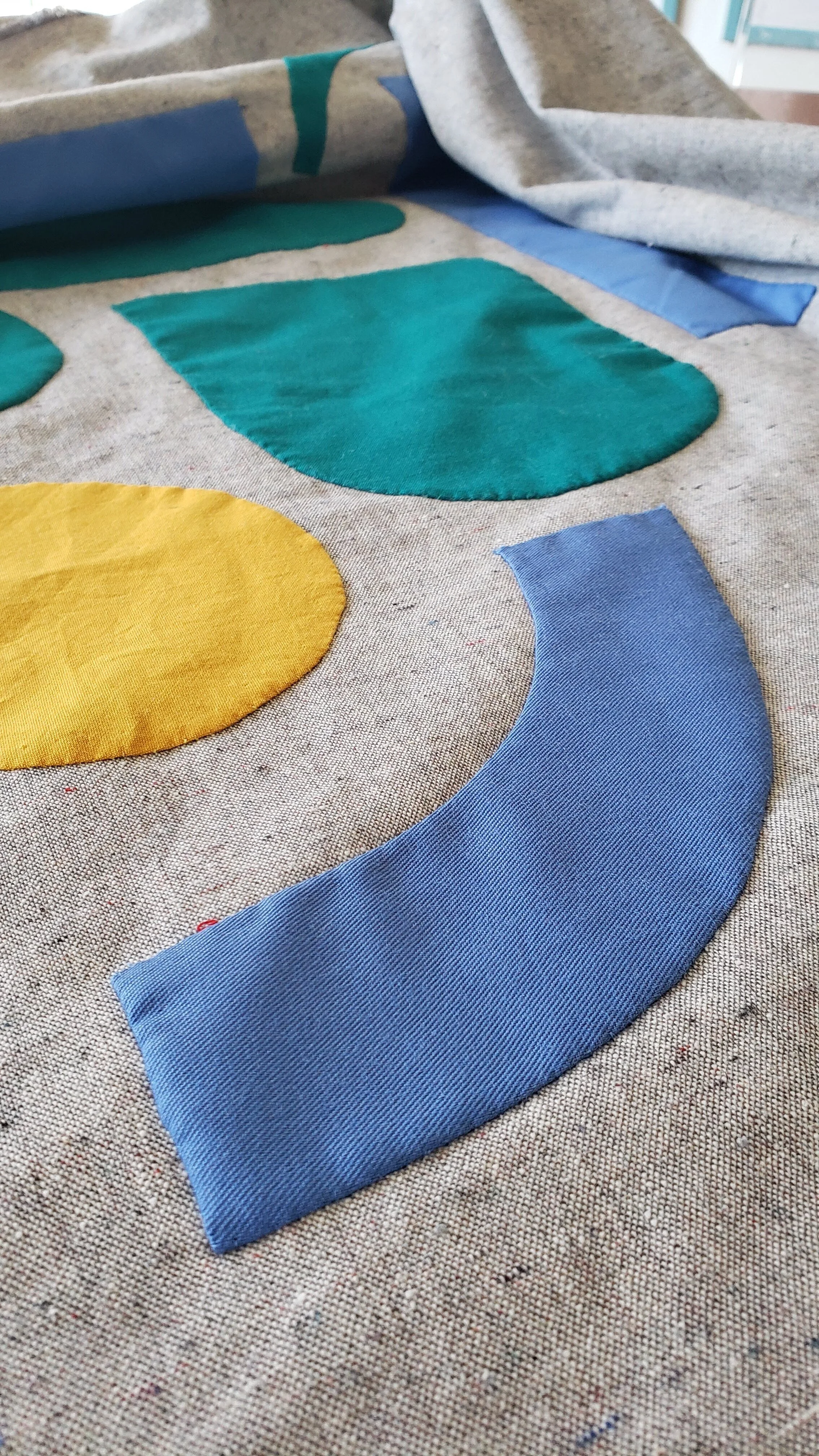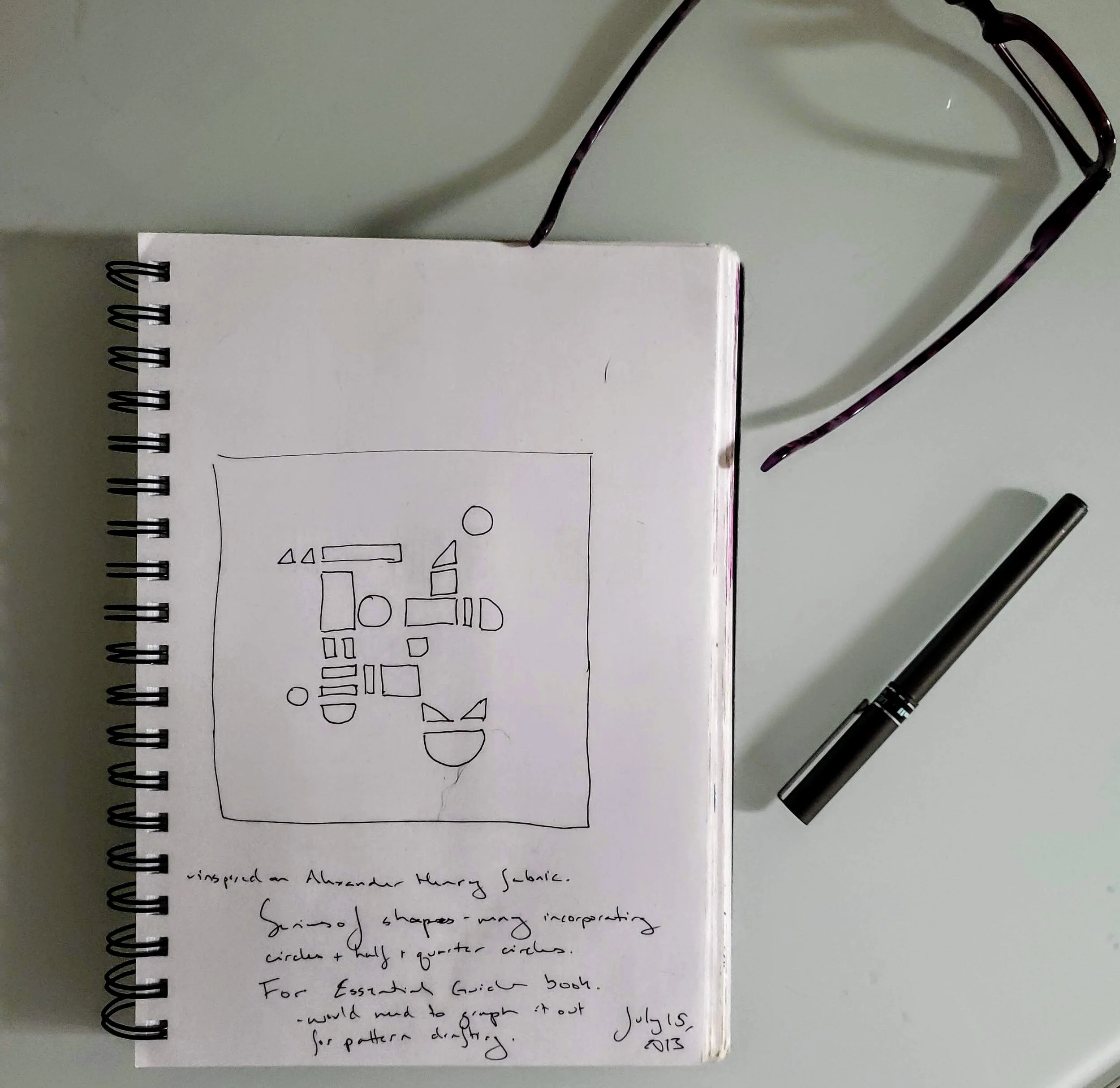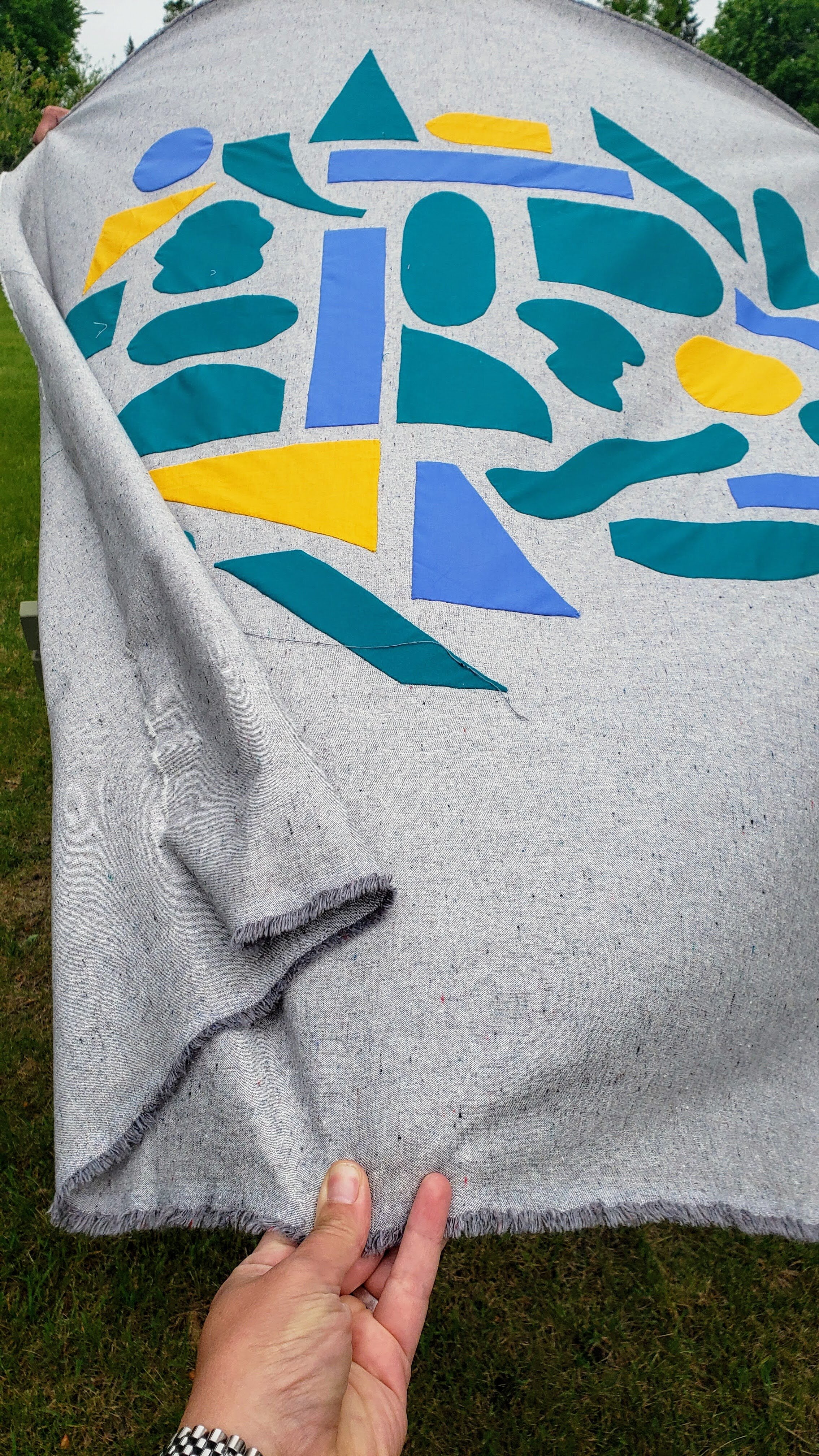Stop the pearl clutching. Let go of your conventions.
Stop saying that politics has no place in quilting. It 100% does.
Stop thinking that white privilege is not a thing. It absolutely is.
Much is being said this week, much is going on this week. I feel like we are at a reckoning for civil action. People are FED UP with the systemic and blatant racism in policing, in society. Thousands and thousands are marching peacefully. Many are raging too. Quilting should be no different.
Like the White House was built by slaves, quilting was also built on the backs, the deaths, the enslavement of people. Cotton. Just think of cotton. Not a person among us should be free of the imagery, the reality, of a cotton plantation. White owners, black slaves. All for cotton. And what is it that is the mainstay of our industry? Cotton.
Of course I am not saying that current quilt shops, fabric companies, and designers are slave owners. But we must absolutely acknowledge that this industry arose as a direct result of slavery.
So, yeah, stop clutching your pearls.
When quilters want to use their skills and their creativity to make a statement with their quilts they are doing so with over a century of tradition behind them. Temperance quilts, church fundraisers, signature quilts all have something to say or show. Block designs acknowledge periods of history or events and we use them now not knowing. So many quilt blocks have Biblical inspirations, those are just as political as a modern interpretation of a raised fist. Quilters use quilts to raise their voices.
The people complaining that politics have no place in quilting are really saying that politics different than theirs don’t belong. It is about silencing a voice they disagree with. And more often than not it is about a white person silencing a voice that is coming from a person of colour or in support of. A perfect example of this is the quilt show reaction to the travelling exhibit Threads of Resistance.
So yeah, quilts always have, and always will be political.
My skin is white. That affords me a luxury of safety and comfort that many others do not have. I do not have to worry that I will be viewed as a thief in a store, just for being in the store. I don’t have to style my hair differently when shooting a class so that I look less ethnic. I am not questioned about whether I am in the right place, ever. All because my skin is white. If you need more explanation or white privilege and you haven’t been watching the news lately, this post is quite succinct. Here is a direct example from the quilt industry. Or take a look at the faculty of nearly every major show, and some of us may remember the defensiveness or organizations when it was pointed out. That is all white privilege.
Look at your book shelf of quilting books, or at the bins in your stash. How many of them were created by black quilters? I’m not saying that the companies are blatantly racist and excluding black designers. It is more that we are all conditioned to see white as better, myself included. I’ve benefited from that system, no doubt. That is white privilege. I had to sell myself, but I had a built in advantage. There are, you should know, a tonne of talented black quilters, designers, artists, and teachers including are Nicole Neblett, Chawne Kimber, and Carole Lyles Shaw. They deserve their spotlight too.
A few years back, it was either at Quilt Market or QuiltCon, a group of women came together to take a photograph. Their point was to show that they were all different people. It wasn’t a group of blonds or middle aged pattern designers, it was a group of black women. Ebony is not Latifah is not Rashida, yet people always want to mix them up. Why? Because they are all notable black quilters and seemingly people couldn’t tell them apart. Why? Because they likely weren’t seeing them as individual people, just ‘the black quilter’. People laughed at the stunt, but it was more telling of the industry than anything.
So yeah, white privilege exists and it is here in quilting.
There is no perfect way forward. And I know that people don’t want to hear that they are wrong or even get the hint that they are racist. Now is the time for all of us to look in the mirror, look at the words we say, and how we act towards all people. I am doing that, so should you.
Don’t be complacent, do the work.
Don’t expect others to educate you, educate yourself.
Don’t assume that you are without fault, we are all a product of history and a system.
I do sincerely hope that time is a reckoning. Here, as a quilter, I want to do the work to make those changes. So I will keep reading, writing, researching, making, listening, amplifying, and respecting. I encourage you to do the same.
As a start, I recommend the following:
The Social Justice Sewing Academy.
The work of both Carolyn Mazloomi and Faith Ringgold.
Checking out the collections of various museums like the Montgomery Museum of Fine Arts, National Museum of African American History and Culture, and the Berkley Art Museum. There is more to African American quilt traditions than Gees Bend.
Reading Empire of Cotton by Sven Beckert and How to be an Antiracist by Ibram X. Kendi.


